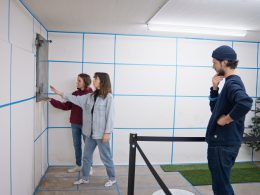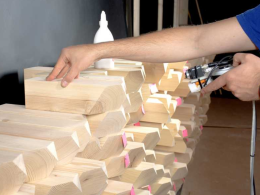Although multiple sclerosis cannot be cured, it can be treated well with medication. Targeted neurological therapies are also used to treat existing symptoms and limitations. The Multiple Sclerosis Centre at Lucerne Cantonal Hospital (LUKS) is constantly researching new forms of therapy, including virtual reality (VR), in order to further improve the quality of life of those affected.
Multiple sclerosis (MS) is a chronic inflammation of the central nervous system. The immune defence is directed against the body's own structures in the brain and spinal cord. Those affected can suffer from very different symptoms such as visual disturbances, difficulty standing or with coordination, numbness, severe fatigue or impaired mental performance.
Therapy adapted to the lifestyle
Today, neurologists can choose the most suitable medication for each individual patient from over 15 different drugs. According to Prof Dr Christian Kamm, neurologist and head of the Multiple Sclerosis Centre at the LUKS Neurocentre, there is currently no prospect of the disease being curable. Research is also currently being conducted into the possibility of repairing the affected nerves.
Another important part of therapy is the treatment of existing symptoms and limitations. Three different group programmes at the Neurocentre of the LUKS provide targeted support for those affected: "MS-Memo", the memory training of neuropsychology and occupational therapy, "MS-Plan", with which patients with cognitive problems train the planning of activities such as shopping, and "MS-Fit" of physiotherapy for support with physical limitations.
Training with virtual reality
"A lot of research is being done to further improve therapies for MS," says Christian Kamm. "The new technical possibilities offered by VR and telemedicine are very exciting." The MS specialist is currently conducting a study in which he is investigating the use of VR glasses and specially developed games. The aim is to enable patients to train their dexterity several times a day in a fun and playful way - and thus make even faster progress.
"Even if we can't yet cure MS, we now have a lot of options for treating MS and enabling those affected to enjoy a high quality of life. I consider this to be very fortunate."
Source: luks









